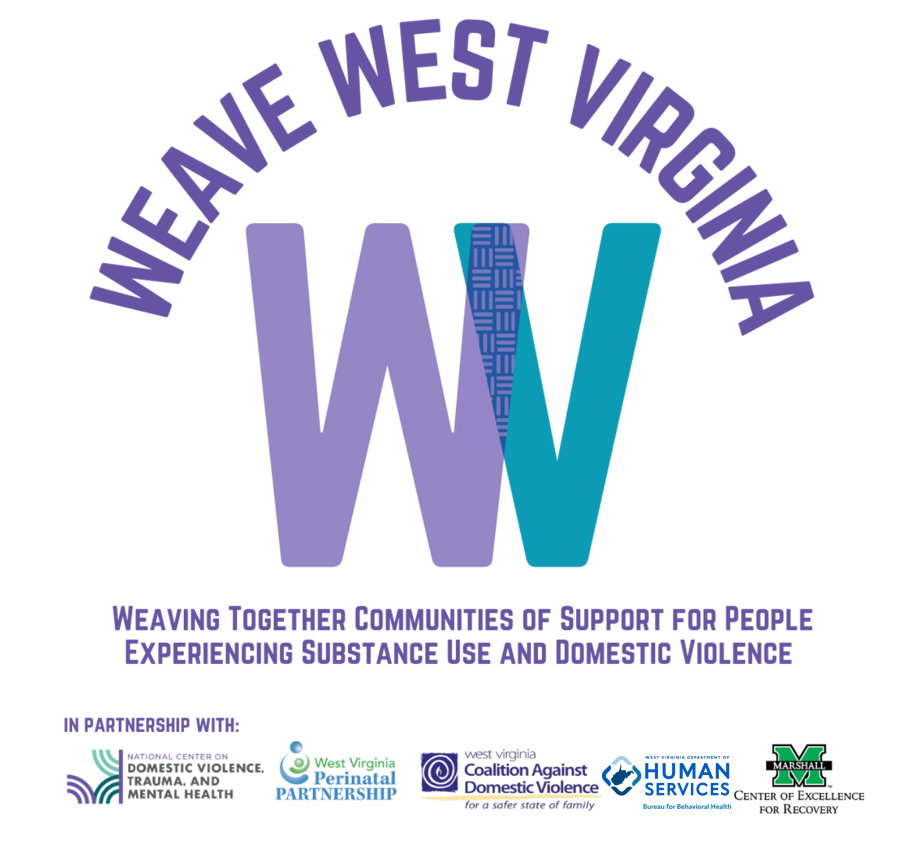TTC Continuing Education Series Events
TTC aims to support, develop, and expand the behavioral health workforce by providing high-equality trainings at no cost* to attendees. CE credit is available for most TTC trainings, and CE certificates are typically sent out within 10-14 days of the live event. Unless otherwise specified, CE credit will be provided for addiction/prevention professionals, counselors, psychologists, school psychologists, and social workers.
*For trainings provided by outside organizations, purchase of study materials may be required. If applicable, any such costs will be specifically noted in the event description.
Weave West Virginia Training Series
Peer-Based Recovery Support Specialists: Panel of Recovery Coaches – May 21, 2024 – 12:00-1:00 pm EDT
Presenters: Candy Cooley, PRSS, CHW and Shelly Tolin
Evidence-Based Integrated Treatment Approaches for Women Experiencing Intimate Partner Violence, Trauma, and Substance Use – May 28, 2024 – 12:00-1:00 pm EDT
Presenter: Gabriela Zapata-Alma, LCSW (IL), CADC (IL)
Evidence-Based Treatment Approaches for Supporting Women with Opioid Use Disorder in MAT Programs – June 4, 2024 – 12:00-1:00 pm EDT
Presenter: Gabriela Zapata-Alma, LCSW (IL), CADC (IL)
Making Evidence-Based Practices More Effective for Survivors Experiencing Substance Use Coercion – June 11, 2024 – 12:00-1:00 pm EDT
Presenter: Gabriela Zapata-Alma, LCSW (IL), CADC (IL)
Weave West Virginia Skills Integration Series
This monthly series will build on the Weave West Virginia ECHO training series webinars (now available on-demand), which offered a framework for understanding the intersections of substance use, domestic violence, and substance use coercion with particular focus on pregnant and parenting people. Each session will provide technical assistance for providers via applied learning, practical strategies, and resource sharing to create survivor-centered and trauma-informed organizations.
More skills integration events coming soon!
Eating Disorders Clinical Training Series
Presenters: Jessica Luzier, PhD, ABPP, CEDS-S and Annemarie Swamy, MD, PhD
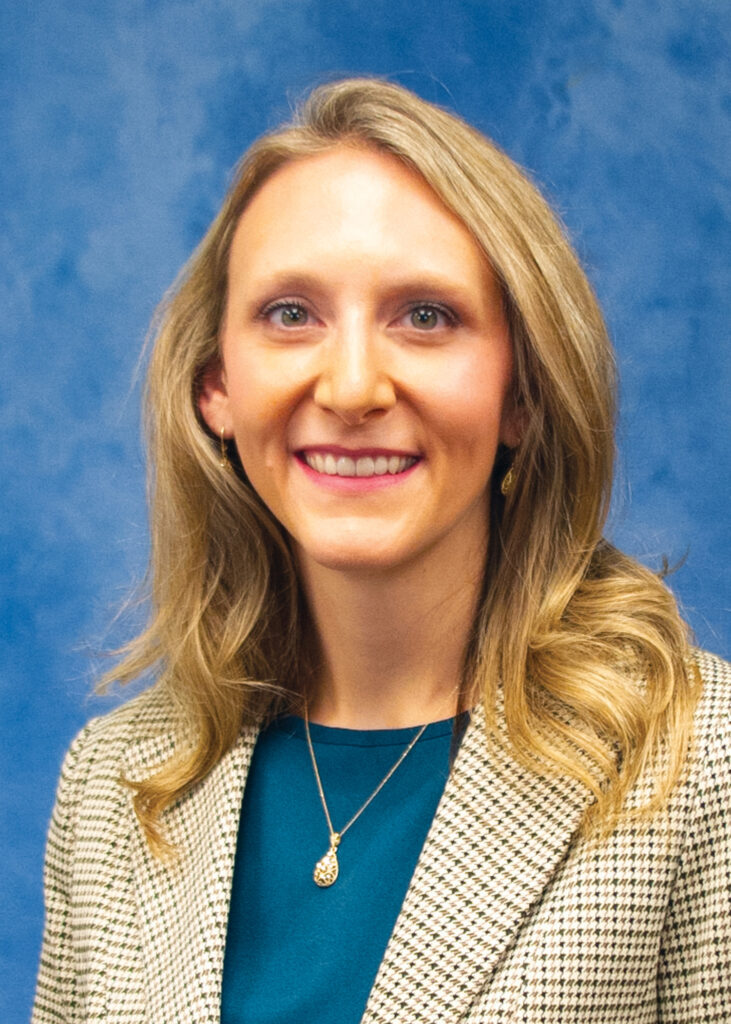
Dr. Luzier, Clinical Director of the WVU Disordered Eating Center of Charleston
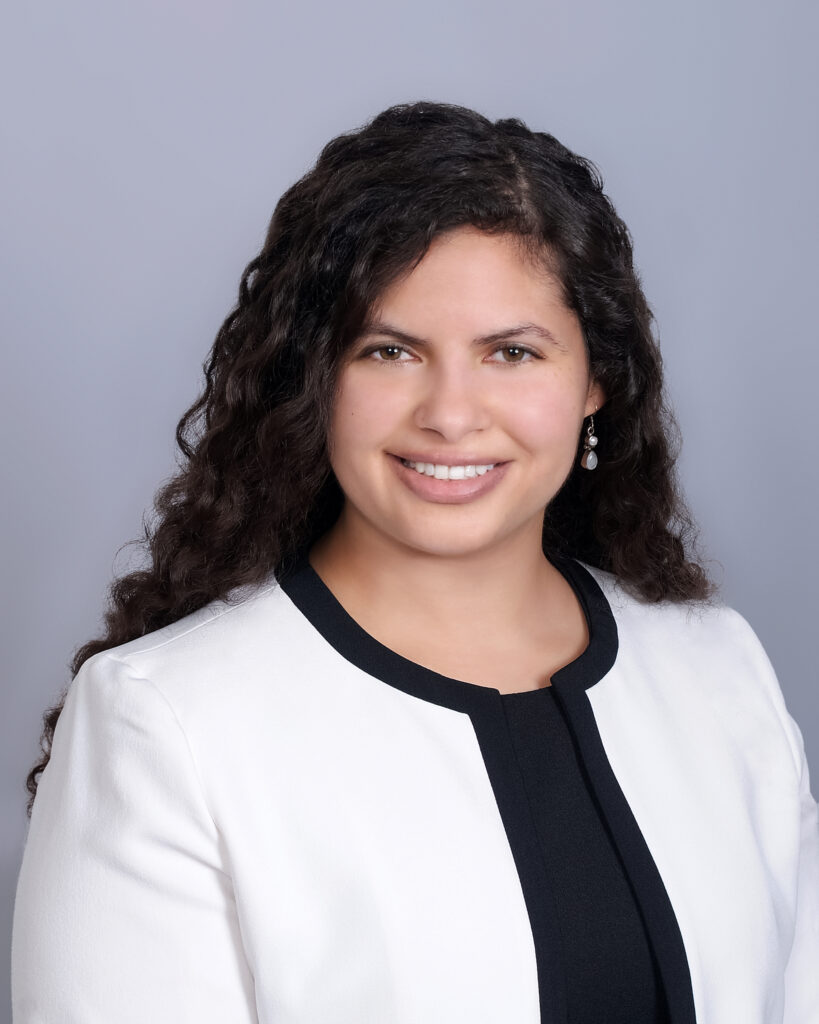
Dr. Swamy, Adolescent Medicine Specialist at the CAMC Women’s and Children’s Hospital
This four-part clinical training series, led by eating disorder experts Dr. Jessica Luzier from the WVU Disordered Eating Center of Charleston and Dr. Annemarie Swamy from CAMC Women’s and Children’s Hospital, will cover critical topics for mental health professionals who treat or are interested in treating this broad range of symptomology. Participants will learn about screening, assessment, and diagnosis; medical and nutritional complications; and evidence-based family therapy and psychological treatments across the lifespan.
Psychotherapy for Youth with Eating Disorders: Family-Based Treatment
May 24, 2024 │ 10:00-11:30 am EDT
Presenter: Dr. Luzier
The Academy for Eating Disorders has outlined the most effective, first-line psychological treatments for children/adolescents with eating disorders, and Family-Based Treatment (FBT) has illustrated the greatest effectiveness across diagnoses. In this presentation, we will present an overview of this novel treatment approach, describe situations in which FBT can be most useful, and review the three stages of FBT. We will demonstrate special techniques for families to use during family meals, both in the clinic and at home between sessions, and we will describe adaptations for using FBT with transition-aged youth and via telehealth. Finally, we will highlight material with case examples throughout.
Psychotherapy for Adults with Eating Disorders: Enhanced Cognitive Behavioral Therapy
June 14, 2024 │ 10:00-11:30 am EDT
Presenter: Dr. Luzier
Specialized competencies are necessary to provide efficacious psychological treatment to people with eating disorders (Strober, 2012; Spotts, 2016). Developed in the UK by Dr. Fairburn in the 1990s, Enhanced Cognitive Behavioral Therapy (CBT-E) is an evidence-based, first-line treatment for adults with eating disorders. We will review the stages of treatment, paying careful attention to the behavioral treatment components in stage one and the cognitive components in stage three. We will also discuss and demonstrate ways to help our clients/patients engage in the treatment, including describing the maintaining mechanisms for disordered eating behavior via the transdiagnostic conceptualization and chaining behaviors. At the conclusion, we will describe ways to access further training and specialization in CBT-E.
Investing in the West Virginia Behavioral Health Workforce
Marshall University Center of Excellence for Recovery
This three-part series is designed to provide various perspectives on the current needs of the West Virginia behavioral health workforce across the continuum of care. Based on findings from a statewide workforce survey administered through the Marshall University Center of Excellence for Recovery, this webinar series will share both staff and leadership perspectives regarding the workforce challenges facing prevention, treatment, recovery, and crisis response as well as strategies to address them at the organizational and policy levels.
Part III – From Practice to Policy Work: Strategies to Advocate for Your Organization’s Needs
June 5, 2024 │ 10:00-11:00 am EDT
Presenter(s): TBD
Concluding the series, this final session will focus on demystifying policy work for behavioral health providers. Effective organizational advocacy is necessary in order for sustainable changes to occur for and within the behavioral health workforce. However, the prospect of engaging in higher-level advocacy and policy work can be daunting for many, and some may even be unsure of where to begin. This session is designed to address those fears and concerns and provide practical insights into initiating and navigating advocacy efforts. Geared toward both organizational leaders and workforce staff across the continuum of behavioral healthcare, this session will serve as a guide for overcoming obstacles and actively contributing to impactful policy changes in our field.
Microcounseling Interventions (MCIs) for Addressing Client-Initiated Microaggressions, Racism, and Other -isms in the Therapeutic Setting: Strategies for Clinicians and Clinical Supervisors
July 23, 2024 │ 10:00 am-12:00 pm EDT
Presenters: Connie T. Jones, PhD, LCMHCA (NC), LCAS (NC), NCC, ACS and Susan Branco, PhD, LPC (VA), NCC, ACS, BC-TMH

Dr. Connie T. Jones, Associate Professor at the University of North Carolina at Greensboro

Dr. Susan Branco, Associate Professor at Palo Alto University
Counselors, therapists, and other clinical practitioners from marginalized backgrounds frequently encounter client-initiated microaggressions, racism, and other forms of discrimination within the therapy environment. Unfortunately, there is often a lack of training, clinical preparation, and education to effectively navigate such incidents in therapeutic settings. Furthermore, practitioners from marginalized backgrounds may lack adequate support as they grapple with these experiences.
Drawing upon critical race theory, the co-presenters will introduce a counseling skills model rooted in Sue et al.’s (2019) concept of microinterventions. This model is specifically tailored to provide support to BIPOC (Black, Indigenous, and People of Color) and other marginalized clinical practitioners. The training will delve into actionable strategies that providers can utilize to address microaggressions, racism, and various other forms of discrimination within the therapeutic relationship. Additionally, it will explore ways in which clinical supervisors can effectively support and advocate for their supervisees who experience discrimination and oppression in their professional practice.
NEXUS ETHICS: A Transdisciplinary Ethical Exploration
August 8-9, 2024
Location: Flatwoods Conference Center (350 Days Dr., Sutton, WV)



Organizations/agencies interested in sponsoring food and beverage (in exchange for an exhibit table and recognition as a sponsor) can contact Dr. Kari Mika-Lude at mikalude@marshall.edu.
From scenario-based discussions to interactive workshops, this in-person ORN Regional Summit is designed to explore the complexities of modern ethical dilemmas that traverse the various behavioral health disciplines. This event will bring together professionals from the fields of counseling, psychology, social work, addiction/prevention, and peer recovery support to engage in dynamic and collaborative learning. By fostering connections and sharing insights across disciplines, NEXUS ETHICS aims to enhance ethical decision-making and promote ethical excellence in professional practice.
We are currently seeking proposals! If you are interested in submitting a proposal to present at this summit, please click here. Deadline for proposals is 6/2/24.
Registration coming soon!
West Virginia Addiction and Prevention Credentialing Scholarships
In West Virginia, there is a crisis-level shortage of behavioral health providers. Data from the Health Resources and Services Administration (HRSA) consistently demonstrates that most counties in the state meet criteria for designation as a Mental Health Professional Shortage Area. Additionally, our state faces significant challenges, including high levels of generational trauma, poverty, substance use, and behavioral health concerns, all of which were exacerbated by the COVID-19 pandemic. According to the Research Recovery Institute, West Virginia was among the states with some of the most significant increases in overdose-related deaths during the pandemic.
While opioids continue to be a pressing concern, West Virginia also faces challenges linked to methamphetamine, xylazine and other psychoactive substances, and polysubstance use. These emerging issues add layers of complexity, underscoring the necessity for a workforce that is not only larger but also more specialized. Such specialization required dedicated training and supervision to effectively address the unique and changing needs of West Virginia communities.
These scholarships will assist providers in earning credentials including the Alcohol and Drug Counselor (ADC), Advanced Alcohol and Drug Counselor (AADC), Prevention Specialist (PS), Clinical Supervisor (CS), and Peer Recovery Support Specialist (PRSS). This will not only ensure a baseline level of competence but will also communicate such standards to the community.
By supporting and developing the behavioral health workforce and promoting community-level intervention, this initiative strives to create a more sustainable and integrated approach to behavioral healthcare, particularly for rural and underserved communities most impacted by the workforce shortage.
This is a scholarship opportunity. Applicants must live and work in West Virginia and must be able to complete their credential by or before September 2025.
Eye Movement Desensitization and Reprocessing (EMDR) Advanced Training Scholarships
Presenter: Rebecca Kase & Co.

What is EMDR, and Why Should I Get EMDR Trained?
To learn more about EMDR, check out these videos:
Introduction to EMDR Therapy
Animation to explain EMDR Therapy and Trauma
EMDR is a powerful treatment, clinically demonstrated to be effective with a number of presenting issues. It is an evidence-based practice for the treatment of trauma/PTSD, and it has also been shown to be effective with other common concerns, including anxiety, depression, addictions, panic, grief, and more.
Prerequisite: EMDR Basic Training through an EMDRIA-approved training program
Participants selected for a scholarship will be able to choose one of the advanced trainings* offered by Rebecca Kase & Co. See Catalog here.
*Restrictions may apply. Scholarships are for individual Advanced Trainings only and cannot be applied to Advanced Training Bundles.
This is a scholarship opportunity funded by The Training Center. Limited supply available.
An Introduction to Polyvagal Theory and Polyvagal-Informed Therapy
Coming soon!
Presenter: Kari Mika-Lude, PhD, LPC, AADC-S, ALPS, NCC, MAC, CCTP, ACS, NREMT
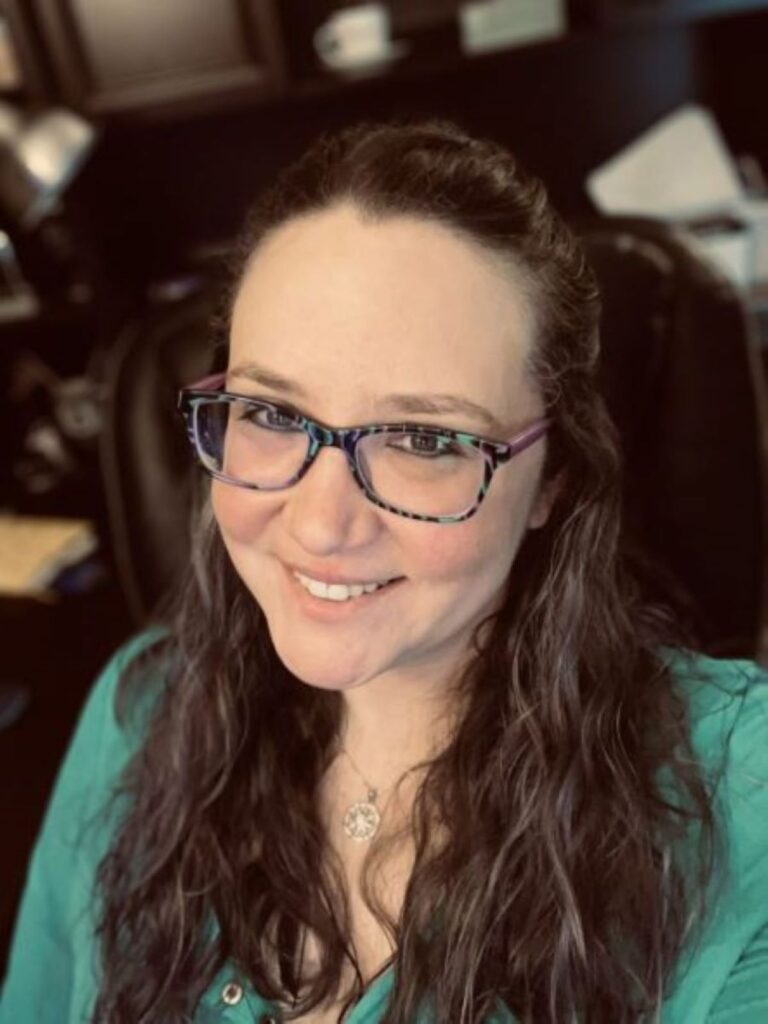
More information and registration coming soon!
Question, Persuade, Refer (QPR) for Suicide Prevention
*No classes scheduled at this time*
Presenter: Dr. Kari Mika-Lude, certified QPR Instructor
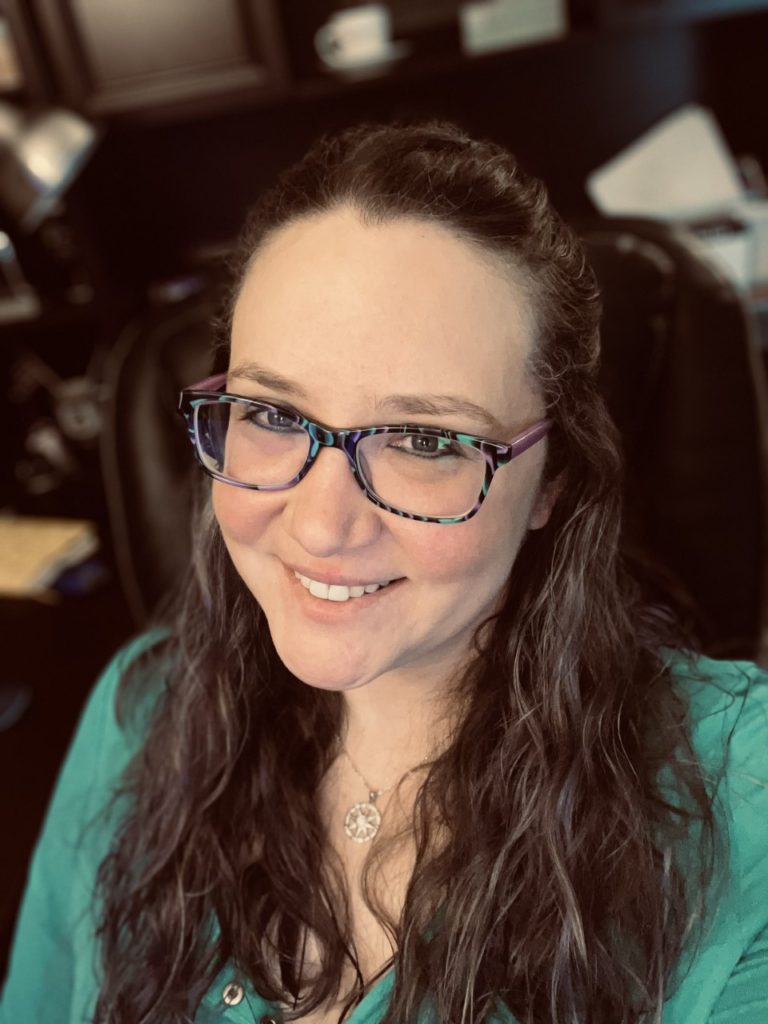
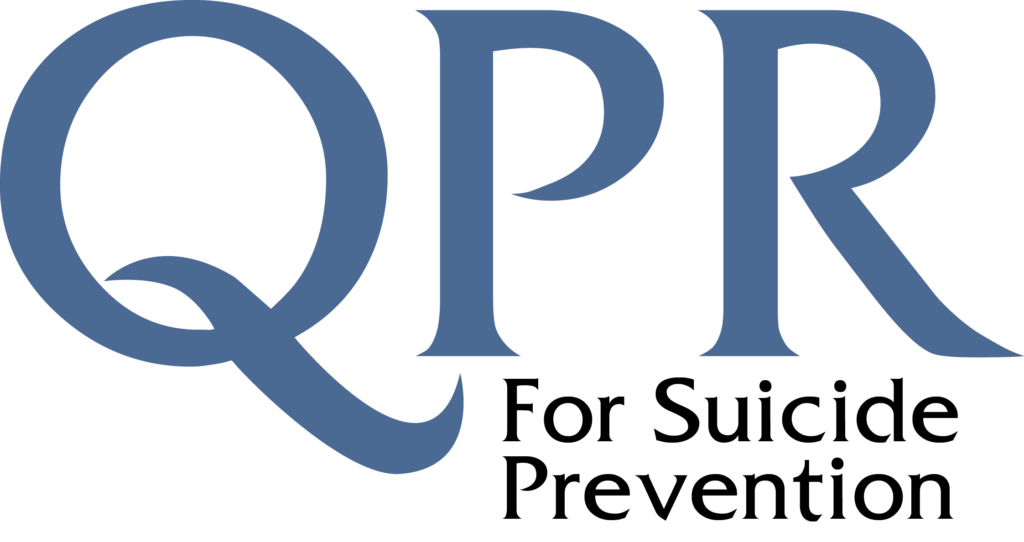
This is an interactive, cameras-on training.
Due to the experiential nature of this training as well as QPR guidelines, only 35 seats are available for each class.
The signs of crises are all around us… we just need to be able to recognize and respond to them. Just like CPR, QPR is an emergency response to someone in crisis. The QPR mission is to reduce suicidal behaviors and save lives by providing innovative, practical, and proven suicide prevention training. QPR is a 90-minute, live-facilitated training intended to offer hope through positive action.
QPR is ideal for non-clinical professionals (e.g., case managers, peers, QRT teams), undergraduate or graduate students, first responders, community members, or anyone without a behavioral healthcare background that wants to learn more about how they can support people in crisis.
Also be on the lookout for additional opportunities later in the year!
Let us know what’s on your “training wish list“! You can also access our on-demand courses on our Online Learning Platform.
Available Upon Request
The Training Center is currently offering 2 different trainings for suicide prevention and mental health support. These trainings are ideal for non-clinical professionals (e.g., case managers, peers), first responders, community members, or anyone without a behavioral healthcare background that wants to learn more about how they can support people living with mental health and/or substance use disorders.
Please contact Kari Mika-Lude for more information.
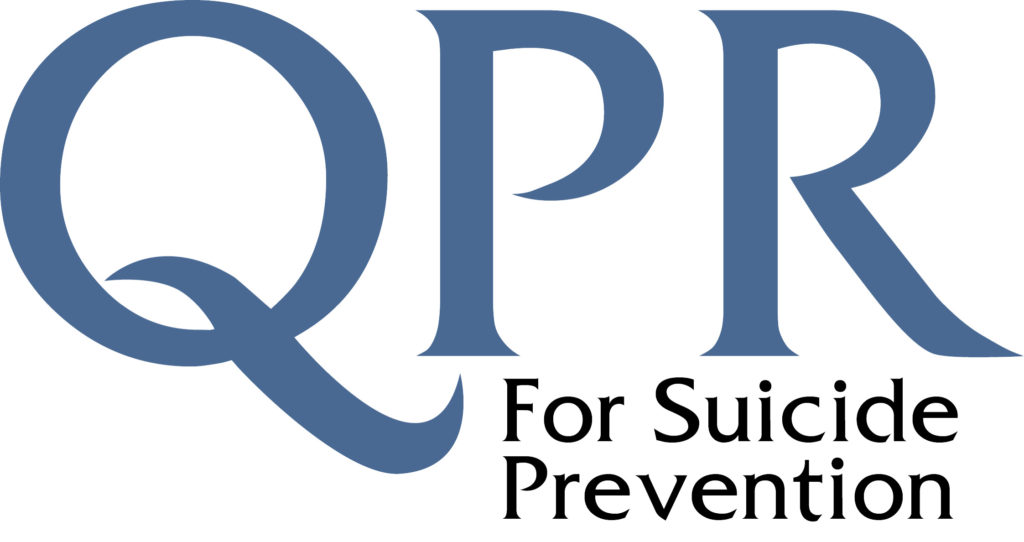
Question, Persuade, Refer (QPR)
QPR is a 60- to 90-minute live training intended to offer hope through positive action. It can be scheduled for groups of 5-35 people.
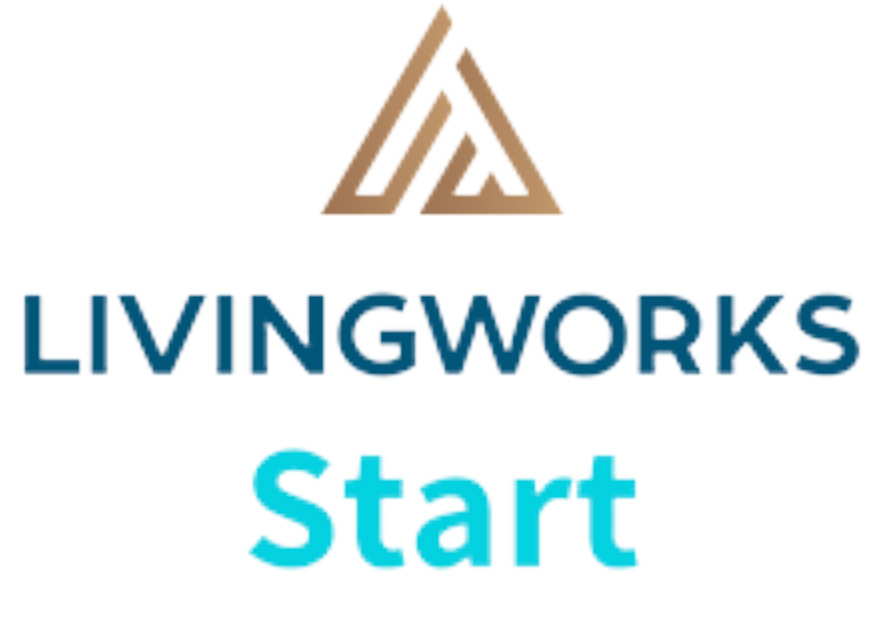
LivingWorks Start
Start is a 60- to 90-minute, online, self-paced, interactive training program that will provide the skills and knowledge needed to keep family, friends, coworkers, and others safe from suicide.
Previous TTC Trainings
The Training Center records most live trainings and makes them available through our Online Learning Portal (Thinkific) so you can revisit the learning material at your leisure. However, please note that CEs are only available to those who attend live.

